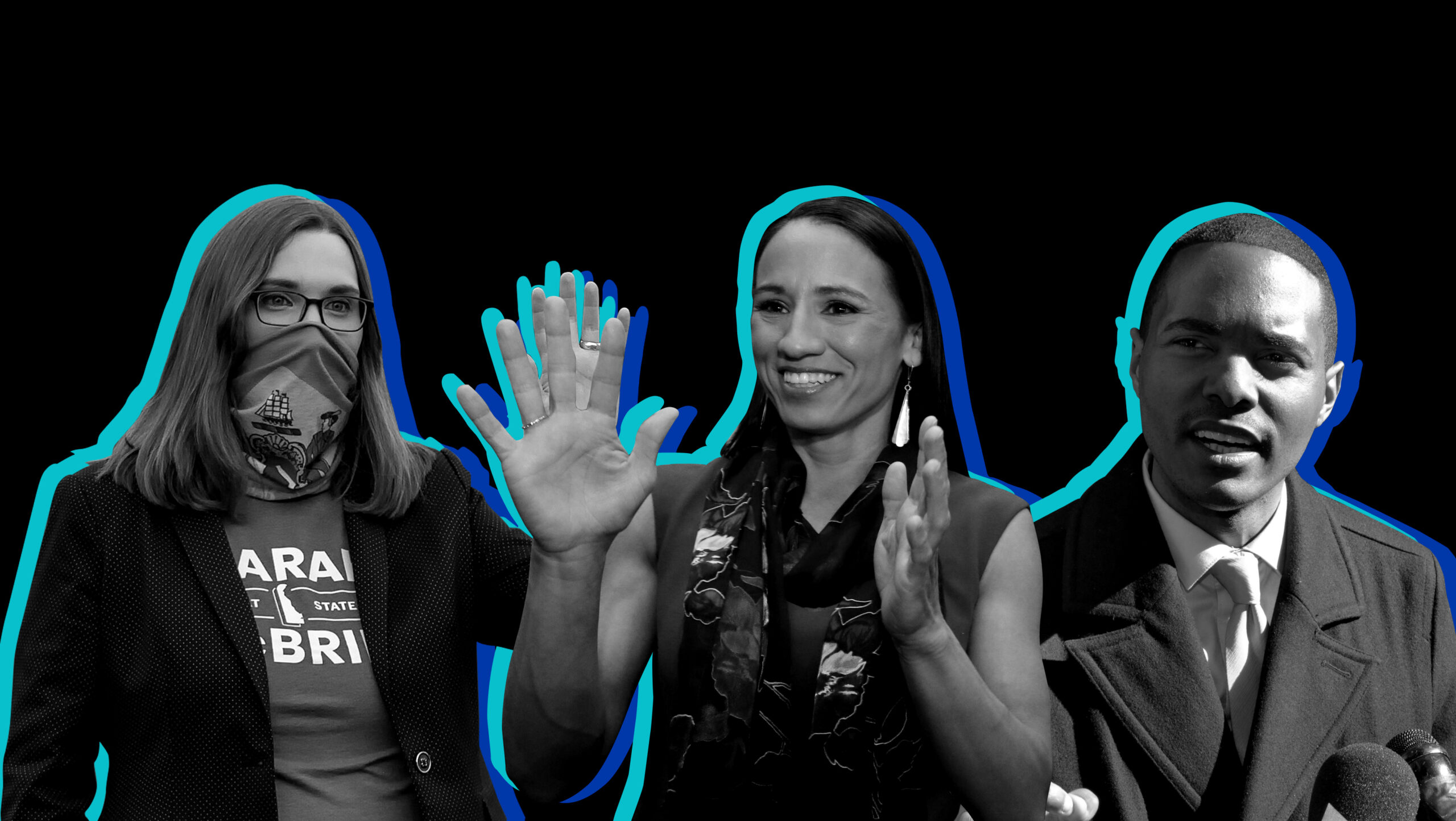The bad news: After a nailbiting evening awaiting U.S. presidential election results, ballots are still being counted nearly 24 hours since polls first closed—and no, we still don’t know who won.
But while we hold our collective breath waiting for a definitive answer, there’s also good news: Across the country, LGBTQ2S+ candidates have made history. From new trans representatives at the state level to the return of familiar queer faces in Congress, there were plenty of queer and trans wins to celebrate last night.
Here are the LGBTQ2S+ electoral victories you may have missed.
First-time wins for Black queer candidates
New York Democrats Ritchie Torres and Mondaire Jones saw decisive victories last night, making them the first-ever Black gay men to win seats in the House for the state. It’s not Torres’ first time making history: In 2013, the Afro-Latinx candidate was the first openly gay elected official from the Bronx on the New York City Council, at just age 25, where he faced an onslaught of homophobia.
In Tennessee, meanwhile, Democratic candidate Torrey Harris has unseated 26-year Republican incumbent John Deberry in the race for U.S. House District 90. Harris, who is Black and openly gay, is the state’s youngest lawmaker—and its first gay one. As Chris Sanders, executive director of the Tennessee Equality Project, told Xtra U.S. correspondent Nico Lang, the win is groundbreaking for the state, which has faced a great deal of anti-gay and -trans legislation in the past months. “We’ll have a tough year ahead of us next year,” Sanders says. “Having out members of the legislature will be a major boost.”
Other Black queer candidates elected include Jabari Brisport, New York’s first Black LGBTQ2S+ state legislator; Kim Jackson, Georgia’s first queer state senator; Shevrin Jones, the first Black gay man elected to Florida’s state Senate; and Michele Rayner-Goolsby, the first Black queer woman to serve in Florida’s state legislature.
Trans history in Delaware and Vermont
Early last night, Delaware Democrat Sarah McBride became the poster child for trans representation in U.S. politics: She’s the country’s first-ever trans state senator, and the state’s first openly LGBTQ2S+ person elected to the legislature. McBride is a former spokesperson for the Human Rights Campaign, and her campaign focused largely on expanding access to health care and reforming police and prison systems. “I hope tonight shows an LGBTQ kid that our democracy is big enough for them, too,” she tweeted after her win.
McBride is joined by Taylor Small, Vermont’s first openly trans state legislator—she’s the fifth trans legislator to be elected in the country.
Indigenous representation in Kansas
Queer Congresswoman Sharice Davids was re-elected for a second term in Kansas last night. During midterm elections in 2018, Davids, a member of the Ho-Chunk Nation, made history as the first LGBTQ2S+ person elected to Congress from Kansas, and one of the first Indigenous women elected in the country.
Stephanie Byers, a member of the Chickasaw Nation, also became the first-ever trans Indigenous person elected to Kansas’s house of representatives. She currently stands as the first trans woman of colour elected anywhere in the country.
And elsewhere in the U.S., Indigenous lawmakers made representational history: According to early reports, more Indigenous candidates have been elected to Congress than ever before.
Representation across the country
Regardless of whether they won or not, the U.S. saw a record number of LGBTQ2S+ candidates running for office in 2020—an achievement for representation across the country. According to Victory Fund, a national organization that supports queer and trans candidates, at least 1,006 openly LGBTQ2S+ Americans ran in elections this year; that’s a 41 percent increase from the 2018 midterms. This year’s candidates were also more racially and ethnically diverse than those two years prior.


 Why you can trust Xtra
Why you can trust Xtra